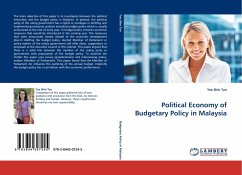In search of best practice for budgetary control in organisations, this book explores the relationships between budget behaviour and the state of corporate management style, culture and policies. The theoretical and empirical evidence presented in the book suggests that: (a) budgeting, contrary to its articulated roles in the literature, may be unsuitable as a strategy for influencing goal commitment and performance, (b) there are specific organisational behaviours which must be developed and embedded in an establishment in support of budgetary control, (c) those specific behaviours are moderated by management style, corporate culture and policies. The book supports the argument that there is a distinction between the functions of (a) setting standards and providing the mechanism for operational planning and control, which budgeting fulfils satisfactorily, and (b) the responsibility for developing and sustaining budgetary goal accomplishment behaviours. The latter depends on specific strategies outside the capability of budgeting.
Bitte wählen Sie Ihr Anliegen aus.
Rechnungen
Retourenschein anfordern
Bestellstatus
Storno








